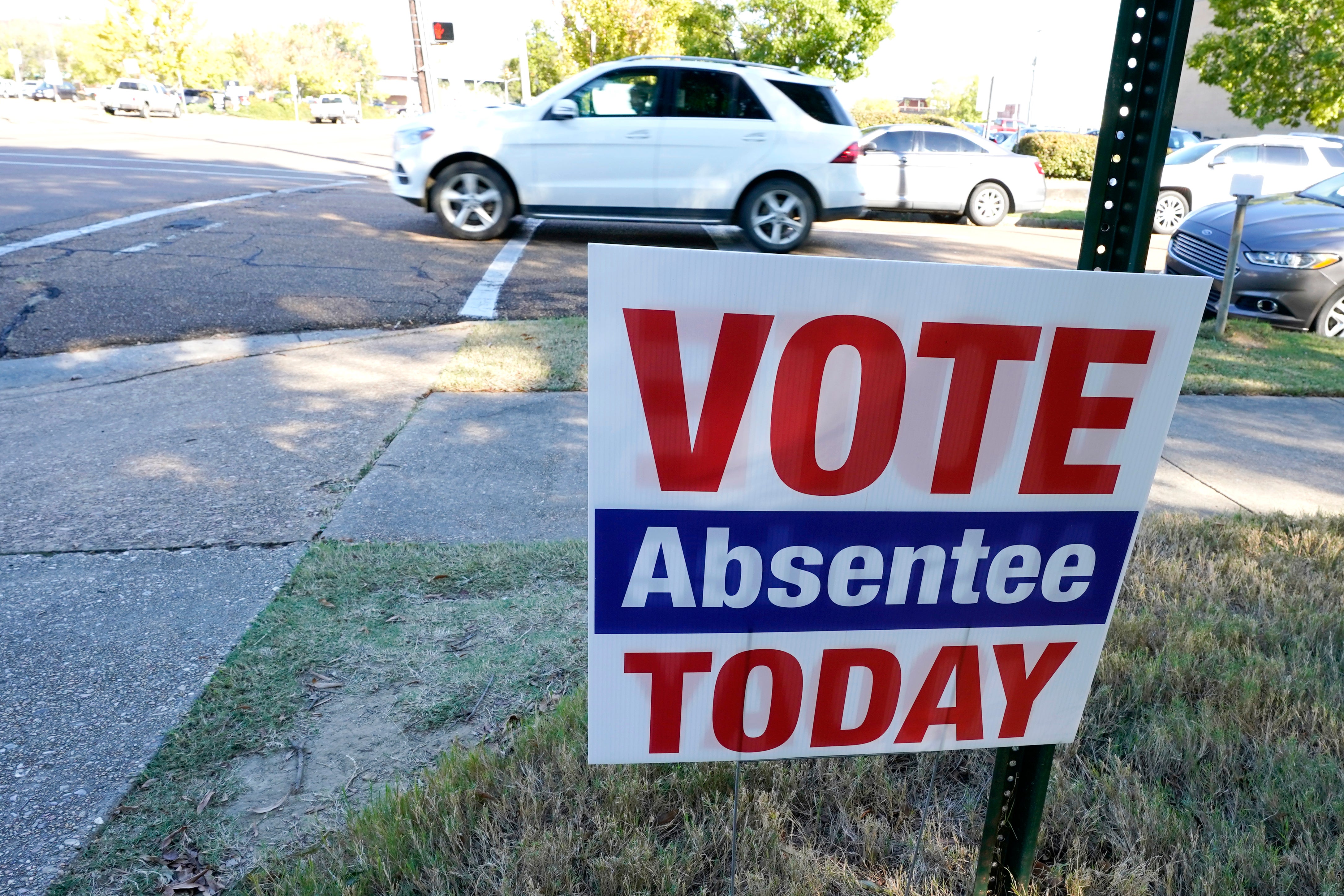Mississippi can't restrict absentee voting assistance this year, US judge says as he blocks law
A federal judge is blocking a new Mississippi law that would set criminal penalties for some people who help others with absentee voting

A federal judge blocked a new Mississippi law that would set criminal penalties for some people who help others with absentee voting — a ruling that comes as absentee ballots are already available in party primaries for governor and other state offices.
U.S. District Judge Henry Wingate wrote in his order Tuesday that Mississippi cannot enforce the law during this year's primaries or general election.
“The voting polls are expected to extend outstretched hands of welcome and provide unfettered access to conscientious citizens anxious to enjoy ‘participatory democracy,’ whether those citizens be among the vulnerable and the disabled,” Wingate wrote.
He wrote that the state law violates the Voting Rights Act, a federal law that says any voter who is blind, disabled or unable to read may receive assistance “by a person of the voter's choice,” other than the voter's employer or union.
The state law — which was supposed to take effect July 1 — would set a short list of people who can “collect and transmit” an absentee ballot. The list includes employees of the U.S. Postal Service or other mail carriers, plus any “family member, household member or caregiver” of the person receiving an absentee ballot.
Violation of the state law would carry a penalties of up to a year in jail and a $3,000 fine.
Opponents said the limitations could hurt candidates, campaign workers, nursing home employees or others who make good-faith efforts to help people obtain and mail absentee ballots.
Wingate wrote that the criminal penalties, along with law’s unclear definition of terms such as caregiver, “promise to deter otherwise lawful assistors from providing necessary aid to a vulnerable population.”
Republican Gov. Tate Reeves said when he signed the law in March that it would ban political operatives from collecting and handling large numbers of ballots. Reeves described the practice as “ballot harvesting,” a pejorative term for dropping off completed ballots for other people.
Wingate wrote that under questioning in court, state defendants “were unable to provide any data illustrating whether Mississippi has a widespread ballot harvesting problem.”
Attorneys who sued the state praised Wingate's ruling.
“All eligible voters in Mississippi should be able to exercise their right to vote without unnecessary — and as the court found improper — impediments by the state government,” Joshua Tom, legal director at the ACLU of Mississippi, said in a statement Wednesday. “This is a win for Mississippians with disabilities and a win for voting rights.”
A lawsuit, which was filed in June, said the restrictions on absentee voting could disenfranchise voters who have disabilities by preventing them from receiving help from people they trust.
One of the plaintiffs is William Earl Whitley, a 78-year-old Army veteran whose legs were amputated and who has relied on the other two Okolona plaintiffs, who are not his relatives, to help him with the absentee voting process.
“Mr. Whitley wishes to continue to have them assist him but he does not want to put them at risk of facing criminal penalties,” the lawsuit said.
Unlike some states that allow widespread use of voting by mail, Mississippi already restricted the reasons people may vote absentee. The absentee ballots are available — by mail or for early, in-person voting — to Mississippi voters who are 65 or older; any voter with a temporary or permanent physical disability, or any voter who is that person’s caretaker; or any voter who will be away from their home county on election day, including college students.
Mississippi has elections this year for governor and other statewide and regional offices, legislative seats and county offices. Party primaries are Aug. 8, and the general election is Nov. 7.
Republican-led states have tightened rules on voting by mail since the 2020 presidential election, in part because of the false narrative of widespread fraud in that race.
The suit challenging the Mississippi law was filed on behalf of Disability Rights Mississippi, the League of Women Voters of Mississippi and three residents of the north Mississippi city of Okolona. The plaintiffs are represented by attorneys from the American Civil Liberties Union, Disability Rights Mississippi, Mississippi Center for Justice and Southern Poverty Law Center.
Bookmark popover
Removed from bookmarks